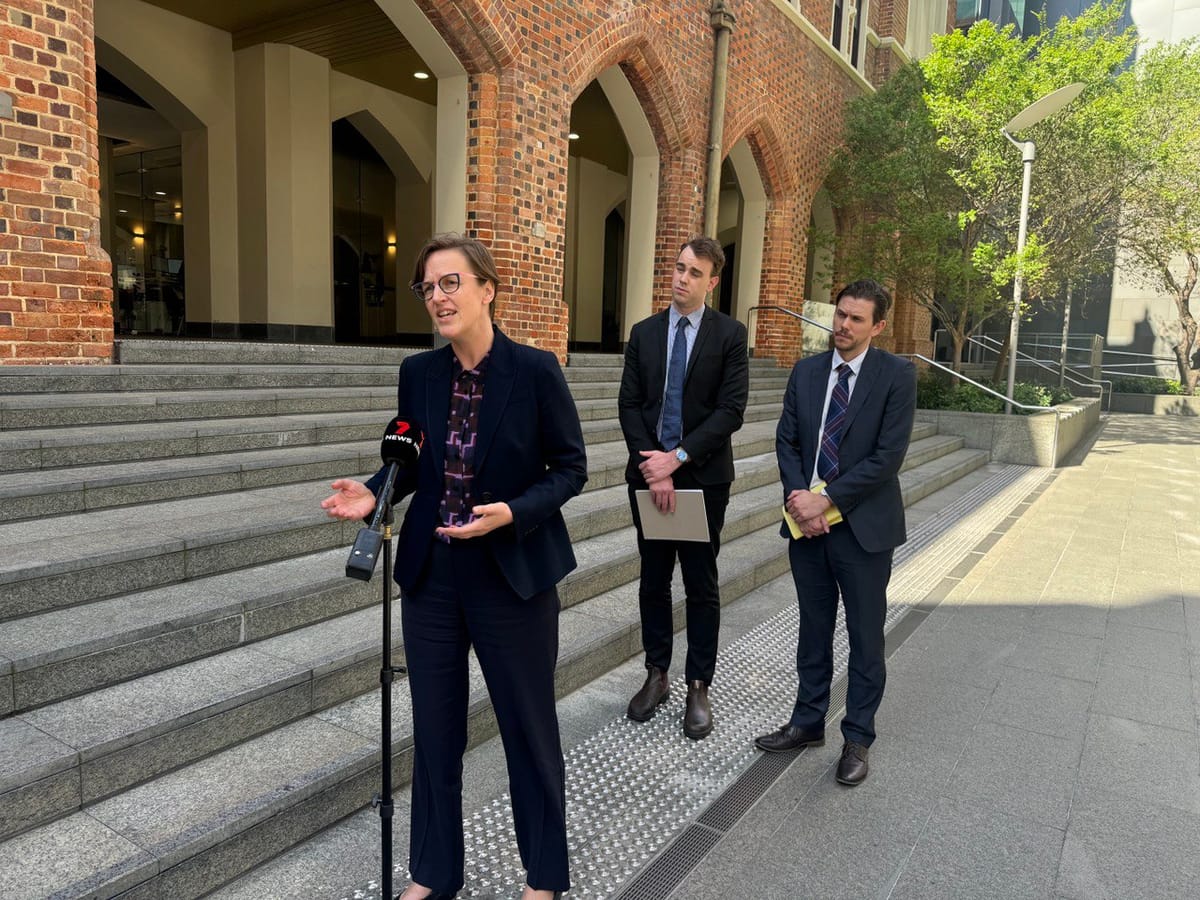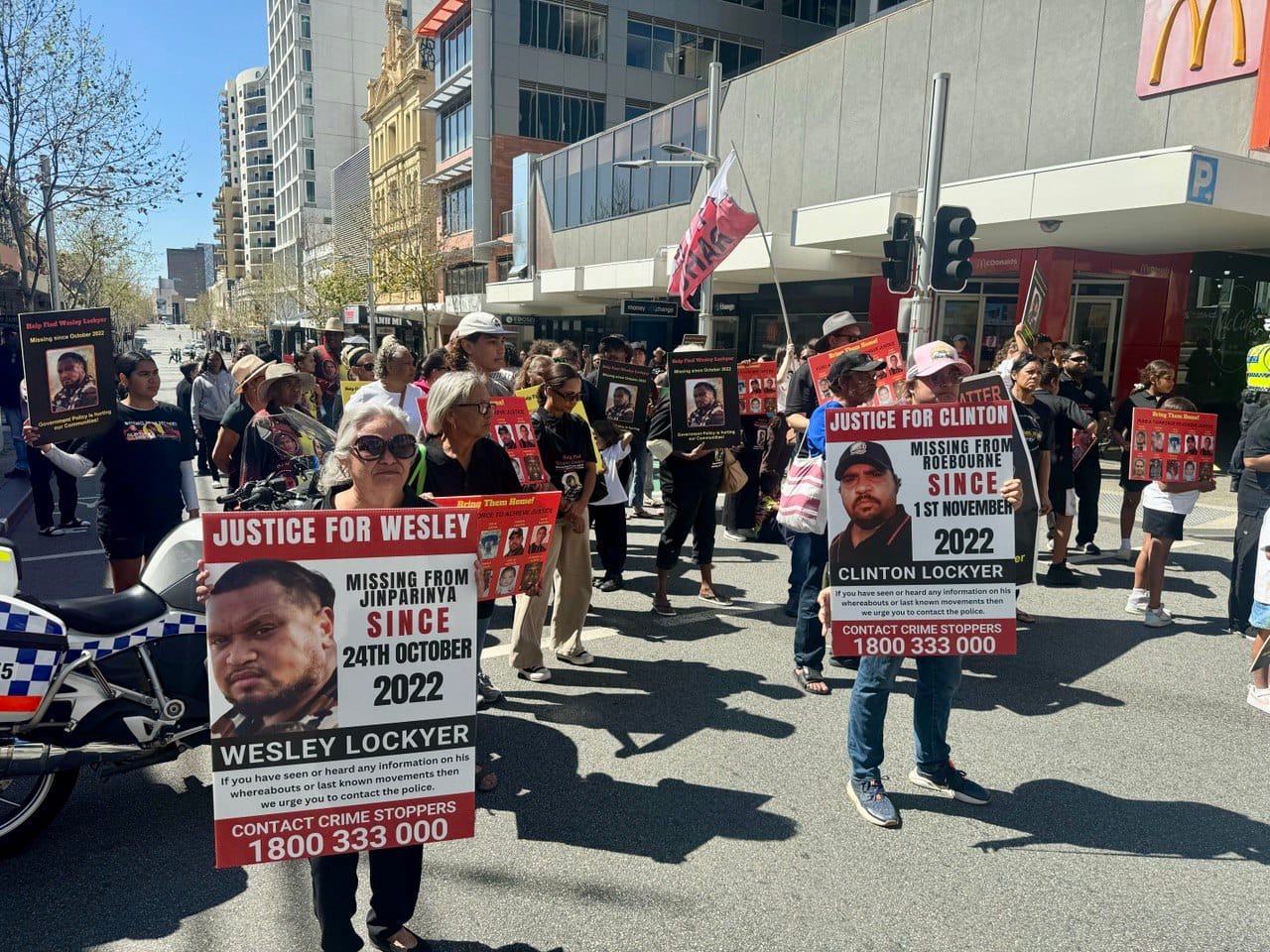The pointy end of the housing crisis
Two Western Australian social housing tenants have challenged no-grounds evictions in the Supreme Court.

Lawyers representing two Western Australian social housing tenants argued in the Supreme Court on Tuesday that the Department of Communities had unlawfully evicted their clients using without-grounds terminations.
I sat in on proceedings for most of the day. As the court discussed contracts, precedents, and statutory powers, it was easy to forget what had led to this hearing in the first place: families broken up and First Nations people left homeless on their own country.
SCALE Community Legal Centre solicitor Kate Davis said there’d been a rise in fixed-term tenancies and without-grounds evictions over the past decade, with disastrous consequences.
Without-grounds evictions occur at the end of a fixed-term tenancy, without a breach of contract having had to occur.
“Evictions from public housing are almost certainly evictions to homelessness,” Davis told reporters outside court.
“Clients of mine who’ve been evicted have lived for many years either on the streets or in their cars. Some children have been apprehended to live in care. Other kids have lived homeless with their family members for years. It’s absolutely devastating. We’ve seen many people homeless on our streets die in Perth. We’ve seen young children, babies, dying homeless.”
One of the applicants, a 29-year-old mother of four who cannot be named for legal reasons, has been separated from her children due to her eviction.
Fixed-term leases usually convert to periodic tenancies on their expiry. Still, the woman was told by the department she had to sign a second fixed-term tenancy after her first expired, according to her lawyers. They argued her eventual termination was unlawful because it was legally unreasonable and denied her procedural fairness.
In a statement released to the media, the applicant said: “I just want a home to be with my kids. I can’t be reunified with my children if I don’t have a safe home for them. Receiving a termination notice without a fair hearing made me feel like no matter what I did, I was going to fail, that there was no chance of a positive outcome.”
During the court’s lunch break, as I left the David Malcolm Justice Centre where the hearing was taking place, I heard chanting and saw police on motorbikes stopping traffic. A protest march was approaching, made up largely of First Nations people, some holding placards bearing photos of Aboriginal men who’d gone missing in missing years. The protesters were calling for the state government to invest more effort into unsolved missing person cases in WA’s north.

“Government policy is hurting our people,” said Banjima man Henry Lockyer as the crowd stopped to temporarily block the intersection of Hay Street and Barrack Street.
“We’ve had enough, we need to be listened to, and we need action. Our petition is being lodged in Parliament today calling for change to policy, calling for the police to work with investigators, and calling for the police to be able to offer rewards for information about our missing people.”
The protest – so much more visceral than proceedings inside the courtroom – was a reminder of another of the interlinked crises faced by Aboriginal communities in Western Australia: disproportionate rates of missing people. Another protest on child deaths in custody will take place at Parliament House today. Problems like these have deep historical roots and can seem difficult to surmount. Ensuring families have their basic housing needs met will surely help.
Premier Roger Cook claimed on ABC Radio on Tuesday morning the Department only resorted to evictions as a “very, very final and last resort,” but said he supported tenants seeking procedural fairness.
“On many occasions, we see people either damaging their social homes or disrupting other neighbours through their behaviour, and we work with those families intensively to make sure that ultimately, we don't see them having to be removed from that home, but if that’s what is required, well then, that is the case,” he said.
“Now, obviously, those people have taken their matter to the courts. I support that. We want them to have procedural fairness and that's important. And so I'm really pleased they have been afforded the opportunity to hear their plea.”
The Supreme Court hearing will continue on 7 October.





